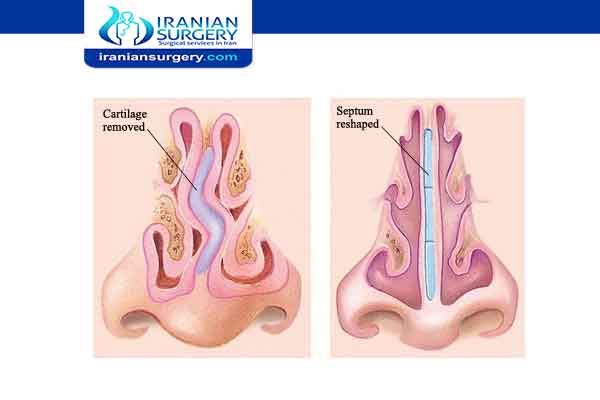1What are the risks of septoplasty?
As with any major surgery, septoplasty carries risks, such as bleeding, infection and an adverse reaction to the anesthetic. Other possible risks specific to septoplasty include: Persistence in previous symptoms, such as nasal obstruction, despite surgery. Excessive bleeding
2Is deviated septum surgery dangerous?
No surgery is completely risk-free, and the benefits of undergoing surgery -- in this case, being able to breathe better -- must outweigh the risks. Septoplasty and septorhinoplasty are common and safe procedures; side effects are rare
3Is septoplasty major surgery?
Surgery is the only way to fix a deviated septum. Septoplasty is a surgical procedure to correct a deviated septum. Septoplasty straightens the septum, allowing for better airflow through your nose.
4How long does it take to recover from a deviated septum surgery?
Most people recover fully in 1 to 2 months. You will have to visit your doctor during the 3 to 4 months after your surgery. Your doctor will check to see that your nose is healing well. This care sheet gives you a general idea about how long it will take for you to recover
5How long after a septoplasty can you breathe?
7–10 days In the second week, you should notice an improvement in your breathing, as well as less pain in your nose. There will still be some crusting and dryness in your nose. Do not blow your nose too hard.
6Is a deviated septum surgery painful?
You should expect some swelling around the nose for two or three days, and may elect to miss a few days of work or school while the nose heals. There is usually little pain after surgery. If you experience discomfort, your surgeon may suggest over-the-counter pain medication, such as acetaminophen.
7Does septoplasty change your voice?
Patients undergoing surgery for a deviated nasal septum (septoplasty) often report that their voice sounds different or less hyponasal. However, such a relationship between septoplasty and vocal resonance remains without scientific evidence.
8How long should you sleep elevated after septoplasty?
Avoid any heavy lifting, bending, straining, or stooping for at least 2 weeks after surgery as this may cause bleeding. Light exercise may begin approximately 10 days after surgery. Try to keep your head elevated during sleep for at least 3 days after surgery. Sleeping on 2 or more pillows is effective
9Will septoplasty fix crooked nose?
Septoplasty helps to straighten your nose by reshaping the wall between your nasal passages. If you have a crooked nose due to a deviated septum, your doctor will likely recommend septoplasty. In addition to straightening your nose, septoplasty can also relieve nasal airway blockage caused by a deviated septum
10How long does pain last after septoplasty?
However, they can experience pain or tenderness on the front of the nose, stuffiness due to swelling and nasal drainage of blood and-or mucous. Swelling from surgery may last two to three days, and drainage might continue for two to five days.


